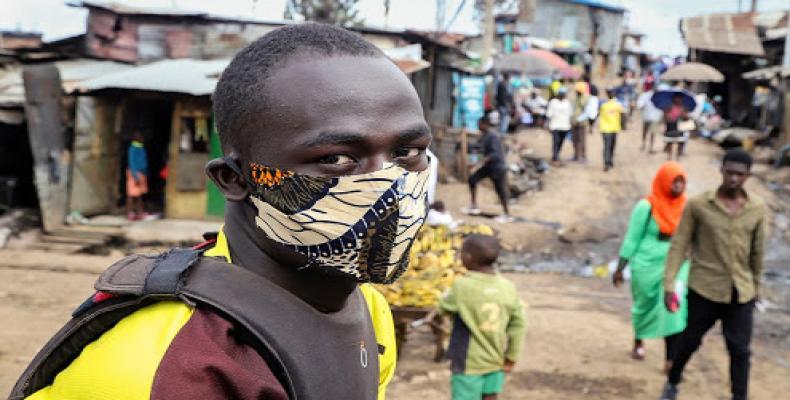Geneva, June 15 (RHC)-- The World Health Organization (WHO) reports the COVID-19 pandemic is accelerating in Africa and moving from the continent's large capital cities into the remote rural areas where it will be more challenging to contain the spread of the disease.
The latest reports put the number of confirmed cases of COVID-19 in Africa at more than 200,000, including more than 5,000 deaths. WHO Director for Africa, Matshidiso Moeti, notes it took 98 days to reach the first 100,000 cases and only 19 days to move to 200,000 cases.
"Even though these cases in Africa account for less than 3 percent of the global total, it's clear that the pandemic is accelerating," Moeti told a media briefing. Moeti said community transmission had begun in more than half of Africa's 54 countries, calling that "a serious sign."
Ten countries are currently driving Africa's epidemic, including South Africa, Nigeria, Senegal, Algeria, and Cameroon, which represent 75 percent of the approximately 207,600 cases confirmed so far, Moeti said.
In South Africa, the worst-hit country on the continent with more than 58,500 infections and some 1,200 deaths, a high number of daily cases and deaths are being reported in two provinces - the more densely populated Western Cape, where Cape Town is located, and the more sparse Eastern Cape.
"Specifically in the Western Cape, where we are seeing a majority of cases and deaths, the trend seems to be similar to what was happening in Europe and the U.S.," Moeti said.
Shortages of test kits remain a challenge on the continent, Moeti added. Until there is an effective vaccine, Africa is likely to see a steady increase with hotspots requiring robust public health and social distancing measures, which represents a significant concern for the WHO.
As the COVID-19, which first appeared in the Chinese city of Wuhan in December of last year, swept across the globe, many experts had warned of a possible dire effect on countries in Africa, which contains many of the world's poorest countries, weak healthcare infrastructure, and millions of people displaced by conflict.


